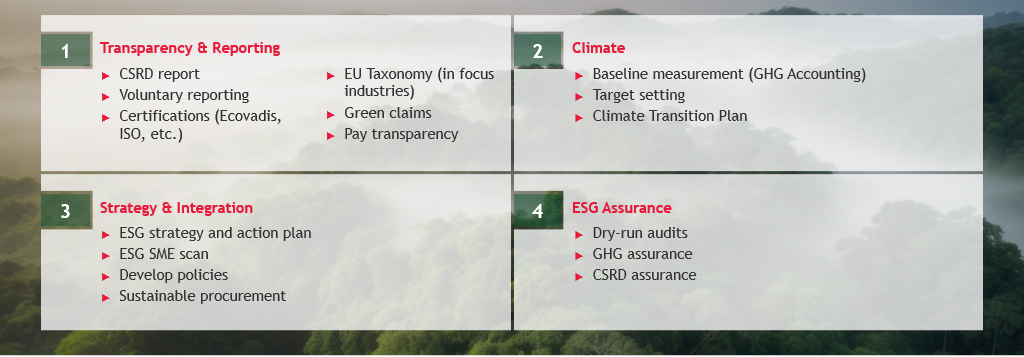The announcement has been expected for some time. On 26 February, the European Commission officially published its ‘Omnibus’ proposal, which scales back certain ESG compliance requirements. It is important to note that this proposal is yet to be decided by the European institutions , and there might be changes in the final text, yet considering the course of actions in the past weeks, it seems likely that the main content of the proposal will likely be confirmed in a later stage. The proposal was driven not only by the need to reduce the administrative burden on businesses but also by the broader geopolitical landscape and economic headwinds facing Europe, which are placing significant pressure on budgets.
Does this game changer proposal rule out sustainability efforts for corporates? Not in our opinion. The European Commission has made it clear that the Omnibus proposal is not intended to undermine the Green Deal.
While the ESG hype may have peaked some time ago, we see that best practices continue to evolve. Sustainability efforts have not been in vain; rather, they provide a strong foundation for translating commitments into tangible actions that enhance business resilience.



